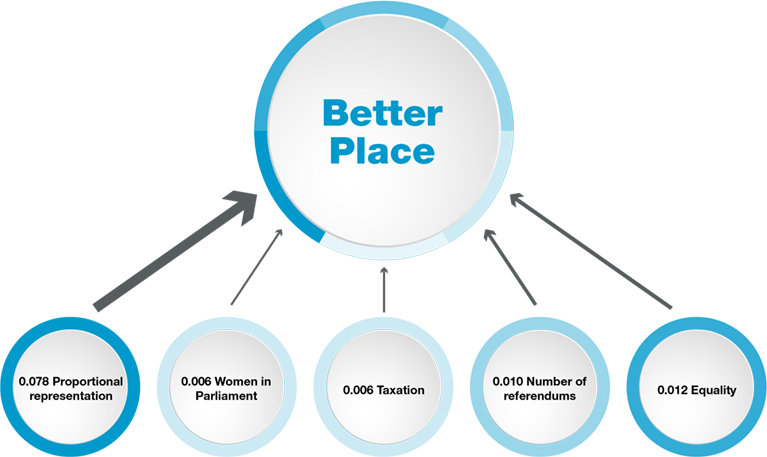
The Better Place Index
Funder
Coventry University
Value
£30,000
Project Team Members
Professor Matt Qvortrup (Principle Investigator)
Mason Waters (Database Manager)
Richard Dickson (RISING Development Manager)
Project Objectives
The Better Place Index (BPI) is a global measure for peace, prosperity and sustainability. It also identifies if governments are doing a good job.
The BPI measures which countries are successful in creating economic welfare, good health, low crime and a better environment. Based on macro indicators, it then ranks the countries.
The Index also explains why some countries are more successful than others. Many research institutes, think-tanks and academics focus on one aspect; institutions, civic norms or economic development. This project takes into account that all these variables make a difference; that they are all important, albeit in different ways and to different degrees.
The idea behind this project started when its Director – on a visit to Papua New Guinea - was asked the very simple question; “how do you build a better place?"
The research team believe the answer is through facts and data – and also, of course, through values. The philosopher Jean-Jacques Rousseau also took this view: “Statisticians, the business is now yours; count, measure and compare”.
Why it all began
There are many other indices, many of which are very useful and interesting, but the team believe they have some limitations to these:
- The UNDP’s Human Development Index (HDI) does not include the environment, and some of its other measures are based on second-hand information, which is difficult to verify.
- The OECD’s Better Life Index is interesting but it is limited to rich countries, so it won't cover Bougainville and other transitional countries.
- The Legatum Institute developed the Prosperity Index, but it is based on many measures and on expert assessments, which can be biased.
- The World Bank’s The Worldwide Governance Indicators ranks countries with respect to six aspects of good governance: Voice and Accountability, Political Stability and Violence, Government Effectiveness, Rule of Law, Regulatory Quality, and Control of Corruption. The assumption that all of these factors are important, is a hypothesis that has yet to be conclusively proven.
This web page will always be evolving, as the research team continue to make further calculations.





